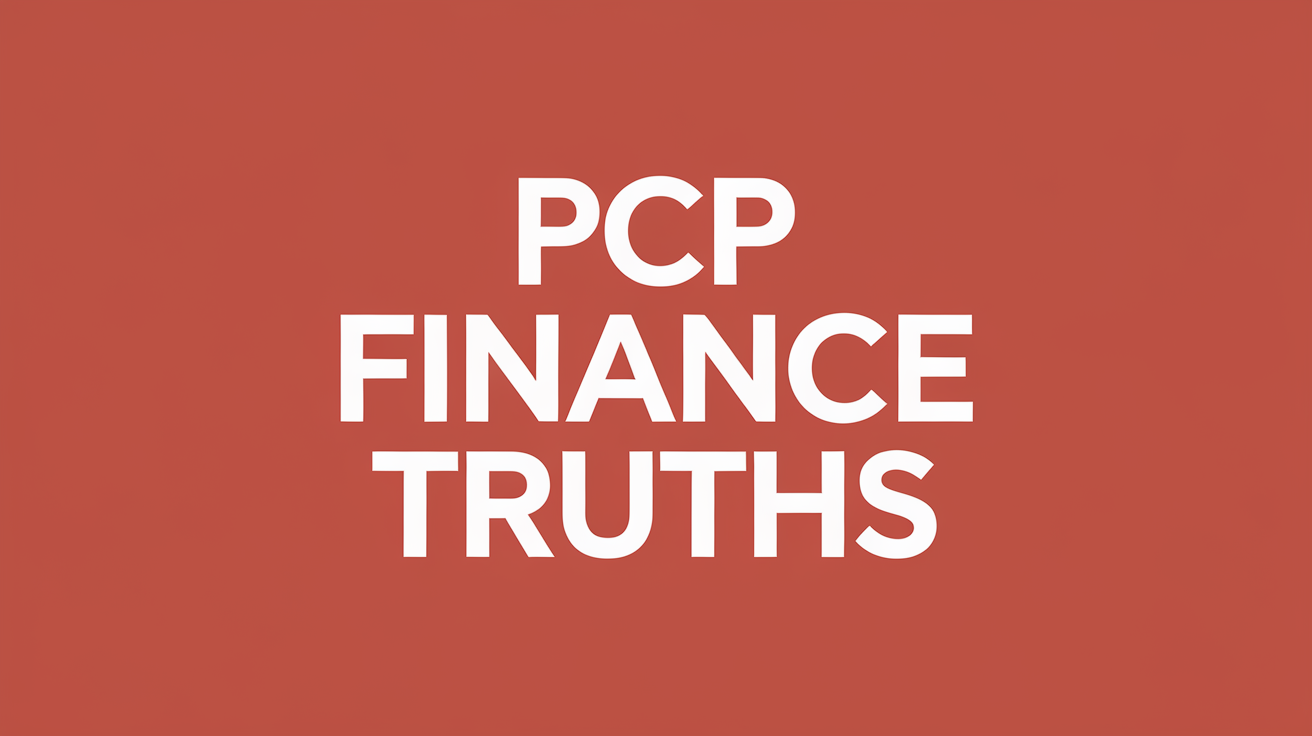There’s a chance you might have a legal right to reclaim money for your mis-sold PCP finance agreement. If the dealer didn’t provide you with all the necessary information, misled you, or failed to conduct proper affordability checks, you could be eligible for a refund. Understanding your rights can help you determine if you can claim back what you’re owed. Dive into the details of your agreement and seek clarity on your situation; your financial peace of mind could hang in the balance.
What is a PCP Car Finance Claim?
While buying a vehicle through a Personal Contract Purchase (PCP) agreement, you may have been misled or not given all necessary information, giving you a right to make a claim. If the salesperson provided poor advice, failed to inform you about commissions, or didn’t present all finance options, your PCP agreement might be considered mis-sold, leaving you eligible for compensation.
Eligibility for a claim
Across various circumstances, you can claim for mis-sold PCP finance if the salesperson did not adequately explain your contract, failed to carry out affordability checks, or did not disclose their commission. You can pursue this claim for both ongoing and settled agreements, as long as the vehicle was for personal use.
Signs of a mis-sold PCP agreement
Eligibility is evident if you faced situations like high-pressure sales tactics or lack of clarity on interest rates. You might recognise that you were mis-sold if the options you were given seemed limited, or if the sales process felt rushed.
In fact, the most obvious signs of a mis-sold PCP agreement include not being informed about commissions, being pressured into a decision, or not receiving sufficient information about available finance options. If your salesperson failed to explain the terms and conditions or the total cost over the finance period, you likely have grounds to claim compensation for your losses.
Finding Your Car Finance Agreements
Even if you think your car finance agreements have been lost to time, they may still hold hidden potential for claims. Identifying your agreements is the first step towards reclaiming any mis-sold PCP finance. You can find records for agreements dating back to 2007, allowing you to assess your options for compensation.
Free Validation of Car Finance Agreements
With a free validation service, you can check any car finance agreements you’ve had. This process will help reveal whether you were mis-sold your PCP finance agreement, ensuring that you know if you have a valid claim to pursue.
Determining Eligibility for a Claim
Among the factors to consider when determining your eligibility for a claim are the adequacy of information provided by the salesperson, affordability checks, and possible undisclosed commissions. If the salesperson didn’t fully explain your finance options or the hidden details of the agreement, you might have cause for action.
Claim eligibility hinges on several pivotal factors. If the salesperson did not disclose their commission, failed to present all available finance options, or neglected proper affordability assessments, you could have a valid basis for your claim. Assessing these details against your circumstances will clarify whether you have a case for reclaiming potential overpayments.
When Can I Claim for a PCP Refund?
Assuming you suspect that your personal contract purchase (PCP) finance was mis-sold, you may have a valid reason to claim a refund. This applies particularly if the salesperson did not present all finance options or failed to explain key details regarding your agreement. The law requires transparency and fairness in the sales process, so if these standards were not met, you might be able to reclaim funds from your PCP agreement.
Grounds for a claim
One fundamental basis for making a PCP claim involves the sales tactics employed by the dealer. If the salesperson pressured you into accepting a contract without adequately explaining its terms or the interest rates involved, this could indicate mis-selling. You have the right to explore all available options and ensure your understanding before committing to an agreement.
Law requirements for lenders
Beside the need for clear communication, the law stipulates that lenders must prove they acted lawfully throughout the sales process. They are obliged to demonstrate that they provided all necessary information regarding the agreement. If they can’t fulfil this obligation, you hold the right to reclaim any overpaid amounts.
The Financial Conduct Authority (FCA) has highlighted that as many as 40% of UK finance agreements may have been mis-sold. This alarming statistic propels you to scrutinise your own PCP agreement, as the lender or dealership must furnish proof of compliance with legal requirements. If they fail to do so, you may successfully pursue a claim for your mis-sold agreement.
Types of Mis-selling
For anyone considering a PCP finance claim, it is vital to understand the common forms of mis-selling that may have occurred. These mis-selling practices can significantly impact your financial situation and deserve attention:
| Hidden Discretionary Commission | Salespersons do not disclose commissions received. |
| Inflated Interest Rates | Interest rates are deliberately raised for commissions. |
| Lack of Finance Options | Failure to explain all available financing choices. |
| Ownership Miscommunication | Not clarifying ownership at the end of the agreement. |
| Ignoring Affordability Checks | Not conducting proper checks on your financial ability. |
The consequences of these practices can be financially devastating.
Common types of mis-selling
Beside the general types of mis-selling, it’s helpful to outline specific mis-selling practices that might apply to your situation:
| High-Pressure Sales Tactics | Pressure to sign without enough time for consideration. |
| Unclear Terms and Conditions | Failure to adequately explain contract details. |
| False Promises | Misleading statements about contract benefits. |
| Lack of Transparency | Not disclosing all fees and charges upfront. |
| Inadequate Record Keeping | Not providing clear documentation of transactions. |
After evaluating these specifics, you may realise the extent of your potential mis-selling case.
Discretionary Commission Arrangements
Along with general mis-selling, discretionary commission arrangements are a significant concern within PCP agreements. These arrangements occur when a salesperson earns additional commission based on the interest rate you pay, rather than what’s genuinely best for you.
In fact, these hidden commissions can lead to you paying more than necessary for your vehicle. Typically, salespersons might inflate the interest rates to earn a higher commission, which means you end up in a contract that isn’t in your best interest. This practice not only undermines trust but also raises your costs significantly. Knowing this can empower you to question the legitimacy of your agreement.
Making a Claim
To make a claim for mis-sold PCP finance, you need to gather relevant documentation regarding your agreement and present your case to the lender or through a claims management company. Ensure you detail how the salesperson may have failed to disclose important information, like commission structures or alternative financing options. If successful, you could be entitled to a refund on overpayments along with additional compensation.
Eligible lenders for a claim
Behind your potential claim are various lenders, including well-known financial services such as Black Horse, Volkswagen Financial Services, and Mercedes-Benz Financial Services. Each lender has obligations to provide accurate information about your financing options. If they failed in this duty, you might have grounds for compensation.
Time limits for making a claim
The time limit for making a PCP finance claim is typically six years from the date of your agreement or three years from when you realised you had sufficient grounds for a complaint. You should act swiftly to ensure your rights are protected.
Further, if you have experienced mis-selling, you shouldn’t hesitate to explore your options. Claiming within the stipulated time limits is vital as missing these deadlines may hinder your ability to recover any compensation. You owe it to yourself to seek what is rightfully yours, especially given the potential for significant financial remediation if your claim is successful.
Multiple Claims and Closed Lenders
You have the opportunity to pursue multiple claims in cases of suspected mis-selling across various PCP finance agreements. Each agreement is distinct, so if you discover problems with different vehicles, you can make separate claims for each occurrence.
Making claims for multiple vehicles
An opportunity exists for you to claim for every vehicle you believe was mis-sold under a PCP agreement. This can include both new and used cars, as well as vans and motorcycles, allowing you to reclaim funds for each mis-sold deal.
Claims against lenders that have gone out of business
Claims can still be made even if the lender has ceased operations. This situation might seem daunting, but it doesn’t preclude your right to seek compensation for mis-sold PCP agreements.
Understanding that you can pursue claims from lenders who have gone out of business is important. You might face additional challenges, such as locating the relevant information or navigating the claims process, but you still have the potential to reclaim funds. If the lender cannot be found, your claim may still be lodged against associated parties or through the Financial Ombudsman Service. You could be entitled to compensation for mis-sold PCP agreements, even from closed lenders, allowing you to seek justice for past vehicle financing issues.
Conclusion
By taking these factors into account, you can ascertain whether you are entitled to seek a refund for a PCP finance agreement that was mis-sold to you. Compare your circumstances to the specified criteria, and if you identify discrepancies or missing information in your contract, you may qualify for redress. Confirming the validity of your agreement is the initial step towards recovering any owed funds, so do not hesitate to reach out to us for assistance if required. We will manage the entire complaints process, including lodging an appeal with the financial ombudsman service if your claim is rejected, all on a NO WIN NO FEE basis.









